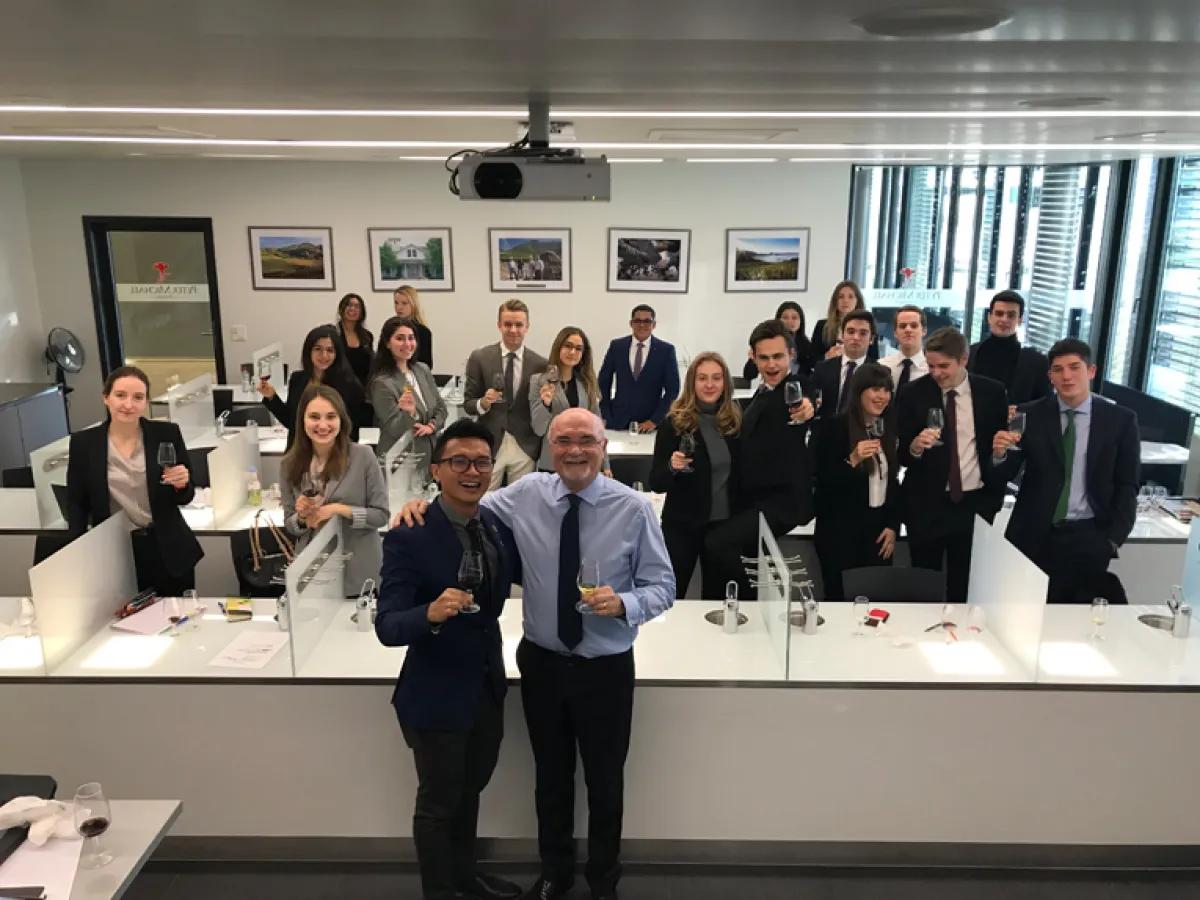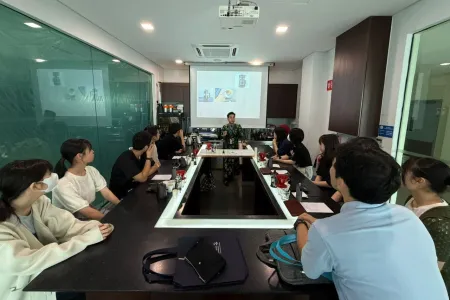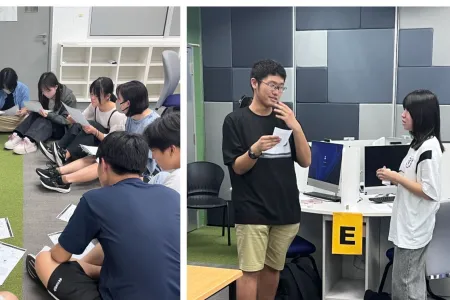Lessons from the Lausanne Hotel School
Dr Daniel Chong was given the “Award for Excellence in Teaching” in 2018. As part of that award, he had an opportunity to visit The École Hôtelière de Lausanne (EHL) (also known as the Lausanne Hotel School), which is located in Lausanne, Switzerland. During his trip, Dr Daniel discusses his observation and experiences. EHL was established since 1893 by Mr Jacques Tscumi. It is known as the oldest hotel school in the world and its campus is located in Le Chalet-à-Gobet, eight kilometres from the city centre of Lausanne. Today, the school welcomes more than 2,800 students from 107 different countries.
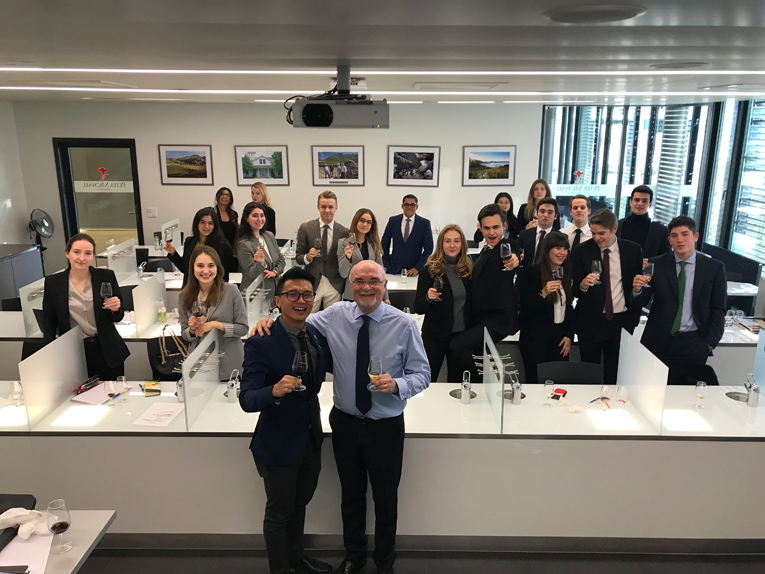
Walking through the main entrance of the school, one would feel like a hotel guest walking into a grand hotel lobby. A team of professionally groomed receptionists were stationed at an exquisitely decorated reception counter awaiting guests’ arrival. A huge banquet hall that could accommodate 300 guests was on the right and 3 VIP lounges, on the left. Right behind the reception counter was a huge concourse with dining tables and chairs that could house 3,000 guests, and was surrounded by 12 restaurants and bars with different dining concepts ranging from fine dining, brasserie, themed dining, semi-fine dining, bistro, snack bar, and many more. Dr Daniel mentioned that “Guests would think they’re in the Ritz Carlton not only because the facilities were impressive, but also because there were no typical “student-look” on anyone in the campus”. Everyone was very formally and professionally groomed that it is difficult to tell the difference between students, lecturers, managers or school administrators. There were multiple banners and notices in the campus grounds that state the “Golden Rule” of EHL’s grooming standards are located at every corner of the campus and a designated “Grooming Standard Manager” walking around the campus Monday to Friday from morning 8am to 5pm to check on students’ attire. These “Grooming Managers” will issue a “fine ticket” and a 15-minute lecture of EHL values to anyone (both students and staff!) who were caught not dressed according to the EHL grooming standards.
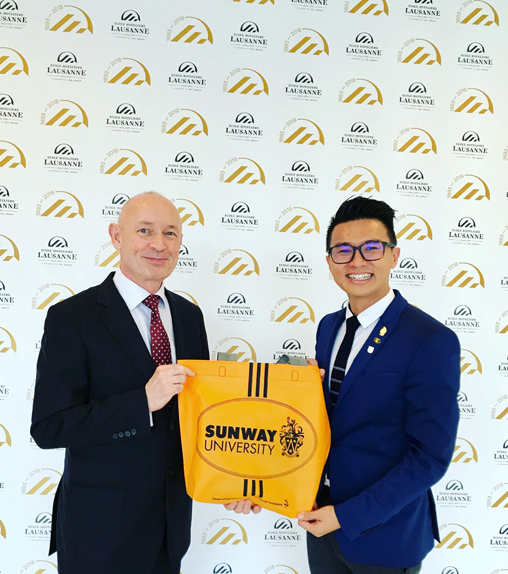
Sophisticated sous-vide cooking devices, commercial scale bread proofers, automated stewarding system, world-class wine tasting room, exclusive gin trolley, walk-in-wine cellar cum cigar room, and cutting-edge classrooms and auditorium are just one of the pillar of EHL’s commitment towards teaching excellence. “Having discovered that there are 6 chef instructors that carry the most respectful title in the culinary industry - MOF ‘Meilleurs Ouvriers de France’ or ‘Best Craftsman of France’ was jaw-dropping for me”, Dr Daniel said. He continues to add, “What surprised me the most is not what EHL has but what they have thought about the future!”. A research center that focuses on the implementation of AI (Artificial Intelligence) in the hospitality industry has been established a year ago and many AI projects are already implemented within the campus. “I have been communicating with Ms Amelia (AI Robot) throughout my visit and she was indeed very helpful!”, he said.
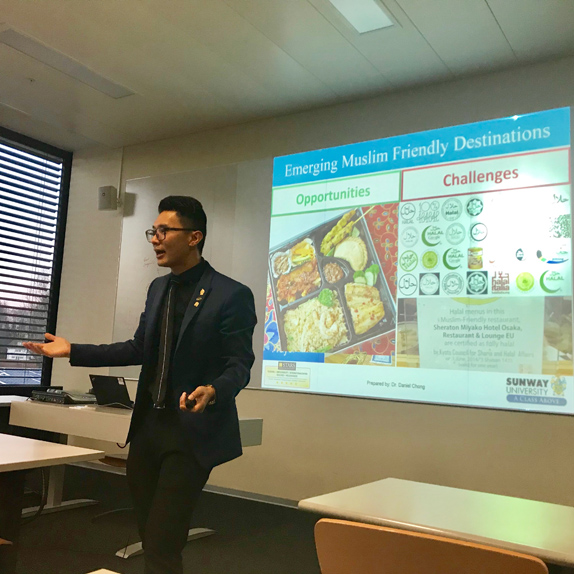
One of Dr Daniel’s key-missions at EHL is to deliver an important message regarding global diversity and inclusion focusing on the emerging of Asian markets, and the significant potential of Halal Tourism in Europe. He conducted 2 workshops for the faculty members of EHL on the topic of “New Emerging Wine Tourism Destinations: The case of South East Asia and China” and “The Growth of Non-Traditional Muslim Markets and Global Readiness in Receiving Them”.
The Wine Tourism workshop highlighted the competitiveness and the constraints of Thailand, India, China and Bali Island in making wine tourism a reality. The possibility of vine growing is a wonder for South East Asian countries but making South East Asia possible for wine tourism is nothing of a miracle but hard work, determination and strong belief. Even though the competitiveness of South East Asia and China’s wine tourism is far from challenging the status quo of European wine tourism, it increases the tourism diversity of these countries and adding reason for Asian tourists to travel “within” rather than going “west”.
In regards to the topic on Halal Tourism, the efforts of Japan and South Korea in making their countries more “Muslim-friendly” have contributed to significant growth in arrivals and total tourism receipts over the last decade. However, most of the European hospitality operators and their hospitality education institutions have little emphasis on accommodating Muslim-friendly requirements. By 2020, Muslim travellers are expected to spend about 160 billion (USD), which is growing at the rate of 17% annually. “There is a need for Europe to be more proactive to avoid “losing out”. – that was Dr. Daniel’s closing note at his workshop at EHL.


